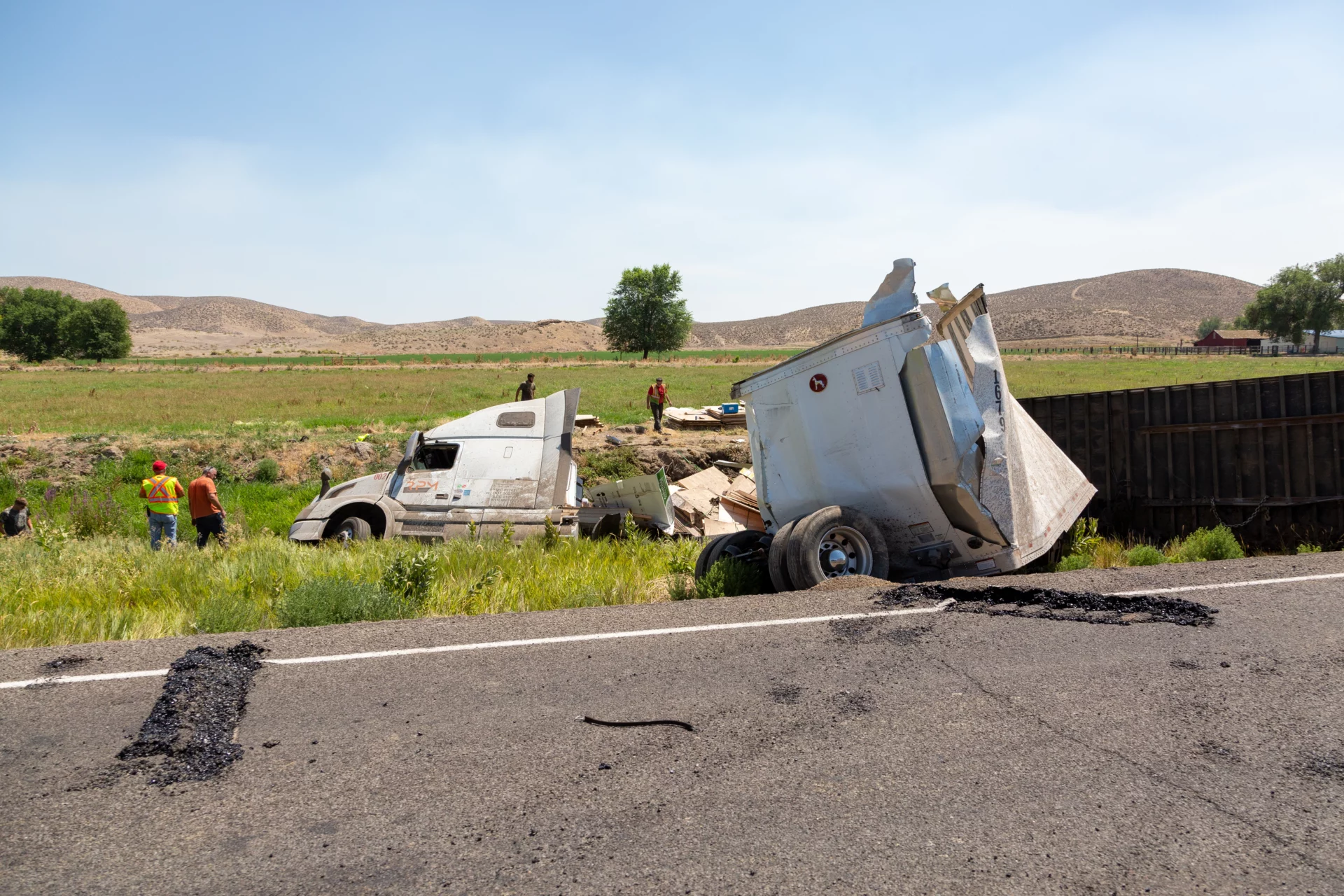
With people across the country beginning to return to work and school, commuter traffic is increasing substantially. Unfortunately—but not surprisingly—traffic accidents are increasing right along with it.
Whether you are a brand-new parent, or you’ve got three kids under the age of four, it’s a good idea to perform regular checks on infant and toddler safety seats, as well as on your vehicle’s seat belts. Even minor wear and tear on car seats and seat belts can have devastating consequences. Furthermore, proper car seat installation is essential to ensure your child’s safety. And with car seat laws in New York and New Jersey being among the toughest in the nation, proper installation and use will also eliminate unnecessary fines and tickets.
Child Safety Seats Save Lives
Motor vehicle crashes are the number one cause of death in children over the age of six months, truly making the safe installation of child safety seats a life or death situation. The proper use of “car seats is one of the simplest and most effective methods available for protecting the lives of our young children in the event of a motor vehicle crash.” But according to the National Highway Traffic Safety Administration (NHTSA), about one-third of all children under 13 killed in collisions in 2018 were not properly restrained in child safety seats or seat belts.
Parents who have been using car seats for years frequently adopt a false sense of security, assuming that the gently used safety seat is perfectly safe and proper installation is obvious and easy. But with countless types and models of car seats on the market today, and with the constantly evolving laws and guidelines surrounding car seat use, it is virtually impossible to know if yours is installed correctly without having it professionally inspected.
Free Check Points and Clinics
Fortunately, most NY and NJ towns have a go-to place to ensure correct installation and safety of infant car seats, toddler seats, and “booster” seats for older children who are still required to be in some type of child safety seat. Check for a fitting station in New York or New Jersey to ensure that your child’s seat is safe and properly installed.
What Parents Need to Know About Car Seat Laws in NJ & NY
In addition to avoiding fines and tickets for improper car seat use, following the NJ and NY car seat laws dramatically reduces your children’s risk of serious injury or death in a motor vehicle collision. To protect their most vulnerable citizens, New York and New Jersey have implemented strict guidelines for car seats.
All child safety seats must be certified under the Federal Motor Vehicles Safety Standard 213. If your seat is old, it is quite possible that it doesn’t meet these stringent requirements. In New York and New Jersey, children must ride in an approved safety seat if they are age four and younger, and in an age-appropriate restraint system until the age of eight.
Types of Child Safety Seats
There are basically four types of child safety seats on the market today. These are the infant car seat, which is rear-facing only; the convertible or combination seat, which transitions from a forward-facing seat to a booster seat; the booster seat for older children, which can have a back or be backless; and the all-in-one seat, which transitions from a rear-facing infant seat to a forward-facing seat, and finally to a booster.
Age and Size Specifications for Various Seat Types
For infants weighing no more than 22 pounds, seats made specifically for infants must be used. Infant seats have five-point harness restraint systems and can only be used as rear-facing. Infants should only ever be placed in the back seat; airbag inflation could seriously harm or kill a small child in the front seat. Many children outgrow infant seats before their first birthday.
Until the age of two and at least 30 pounds, the child should remain in a rear-facing seat with a five-point harness system, but they may move from an infant seat to a “convertible” seat, which also has a five-point harness. Once children meet height and weight requirements, their seat can be turned to face forward. But they should remain in the back seat until at least the age of 12, and for as long as possible.
When a child grows too large for the infant or convertible seat, they can move up to a booster seat. This transition shouldn’t occur until the child is eight, however, unless he/she is at least 57 inches and has reached the car seat’s upper limits for weight. Fortunately for parents who have been buckling children into and out of infant and toddler seats for years, booster seats are typically a welcome change. They require minimal installation, are easier to move from one car to another, and are generally much simpler to use. Booster seats should be used by children until the age of eight, but smaller children may use these seats until the age of 12.
In addition to checking age requirements for booster seats, you should carefully consider your child’s weight. While some seats can safely hold children up to 80 pounds, others may have a weight limit of 40 or 60 pounds.
Penalties for Car Seat Violations in New Jersey and New York
It is a common misconception that people don’t actually get tickets for violating car seat laws, especially those pertaining to older children. But in the 12 months following New Jersey’s new 2015 car seat legislation, a whopping 6,257 tickets were issued for car seat and seat belt violations involving kids under the age of eight.
- Penalties for violating car seat laws in New Jersey may include a fine of up to $75.
- Penalties for violating car seat laws in New York may include a fine of up to $100.
In addition to any fines, you may also get points on your driver’s license for violating child safety seat laws. Too many points, and you can lose your license.
Common Mistakes Parents Make When Using Car Seats
If you are unsure of whether your car seat meets federal safety requirements, is appropriate for your child’s age and weight, and is properly installed, you are not alone. Car seat safety mistakes are common, which is why free fitting clinics abound in New Jersey and New York. Some of the most common mistakes parents make when using car seats include:
- Borrowing a friend’s car seat that isn’t the right size for their child or correct fit for their car;
- Failing to replace a seat after an accident;
- Transitioning the car seat to forward-facing position too soon;
- Incorrect installation;
- Buckling the harness around blankets, coats, or heavy sweaters;
- Transitioning to the next step up in seats before the child is the appropriate age/size.
“A lot of parents really try very hard to do things the right way, but when we see car seat inspections, we find that even the parents that are the most attentive to detail tend to miss a few things and make the car seat less safe,” said Frank Neary, AAA Club Alliance car seat technician. “Probably the single most common mistake parents make installing a car seat is that it’s not tight enough.”
According to AAA, a properly installed car seat shouldn’t move more than one inch in any direction.

Tips for Ensuring Correct Car Seat Installation and Safety For Your Kids in and Around a Car
To ensure that your car seat is safe and properly installed, it is in your best interest to visit an authorized fitting location. But this isn’t a one-and-done assurance.
Furthermore, cars are extremely dangerous machines, in general, and this is particularly true for children under the age of eight. Follow the tips below to keep your kids safe in and around cars.
- Follow child safety seat laws.
- Invest in a good child safety seat. Brand new seats can be expensive, but you may be unaware of safety defects and recalls if you buy a used seat.
- Do your research when buying a child safety seat; read reviews and buy the best seat for your unique needs. Check out the National Highway Traffic Safety Administration’s (NHTSA) convenient Car Seat Finder page to read reviews, ratings, comparisons, and recommendations.
- Watch the NHTSA’s car seat installation instruction video for guidance on proper installation and use.
- Ensure proper car seat installation by visiting your local police department, fire department, or another fitting location in your area.
- Register your child safety seat to ensure that you get notification of any product recalls and safety updates.
- In addition to federal and state guidelines, always refer to the manufacturer’s instructions for the specific car seat you are using.
- Keep your child in a child safety seat as long as possible, and in the back seat at least until the age of 12.
- Never leave a child unattended in a vehicle.
- Never, ever leave a child in a vehicle when the weather is hot, not even with the windows down, and not even for only a few minutes.
- Before walking away from a vehicle and locking the doors, get in the habit of looking in the back seat.
- Always keep vehicles and their trunks locked when not in use.
- Never let children play around a vehicle without adult supervision. Children can become locked inside cars and trunks, and vehicles can move without warning.
- If you have children or live in a neighborhood with children, always take extra precautions and check behind your car before backing out of a driveway.
What to Do if Your Child Has Been Injured in a Car Accident
Unfortunately, despite our best efforts as parents, accidents can and do occur. Following any type of injury accident, seek immediate medical treatment. This is true even when injuries are not readily apparent; certain serious injuries, including internal bleeding and soft-tissue damage can often take days or weeks to produce visible symptoms. And kids don’t always have the ability to accurately verbalize the symptoms they are experiencing.
Seeking medical attention can ensure that your child is not suffering from a serious complication, and if underlying problems are detected, immediate treatment can be administered.
If follow-up treatment or long-term care is ordered, make sure to follow the doctor’s orders and report to all appointments as scheduled. In addition to ensuring your child’s safety and well-being, having a record of medical care can be invaluable to a personal injury lawsuit, should you decide to file one.
If your child has been injured in a motor vehicle accident, it is also in your best interest to consult with an experienced NJ/NY car accident injury lawyer as soon as possible. You may be entitled to compensation for medical expenses, lost wages from time off work, and emotional pain and suffering.
No amount of money can undo the pain and trauma of an auto accident injury, especially when a young child is involved. But compensation can give you the time and space you need to care for your child, help them heal, and return to some semblance of normal. If the injuries are the result of another’s negligence, a car accident lawyer can help you obtain the compensation you deserve.
At Kreizer Law, our compassionate, knowledgeable legal team will review your case, determine the most appropriate legal strategy for moving forward, help you gather evidence to substantiate your claim, and negotiate for the maximum settlement possible.
Keep Your Children Safe by Following Car Seat Laws
Are you using the right seat based on your child’s age and weight? When can you turn your rear-facing car seat around? Is your seat properly installed? All of these questions have crossed the mind of every parent. The answers are easy to find, yet the NHTSA estimates that 59 percent of all child safety seats are improperly installed
Following the NJ & NY car seat laws can prevent your children from being seriously injured in a car accident. What better motivation can there be to ensure that you’re following state and federal safety guidelines for car seat use and installation?










